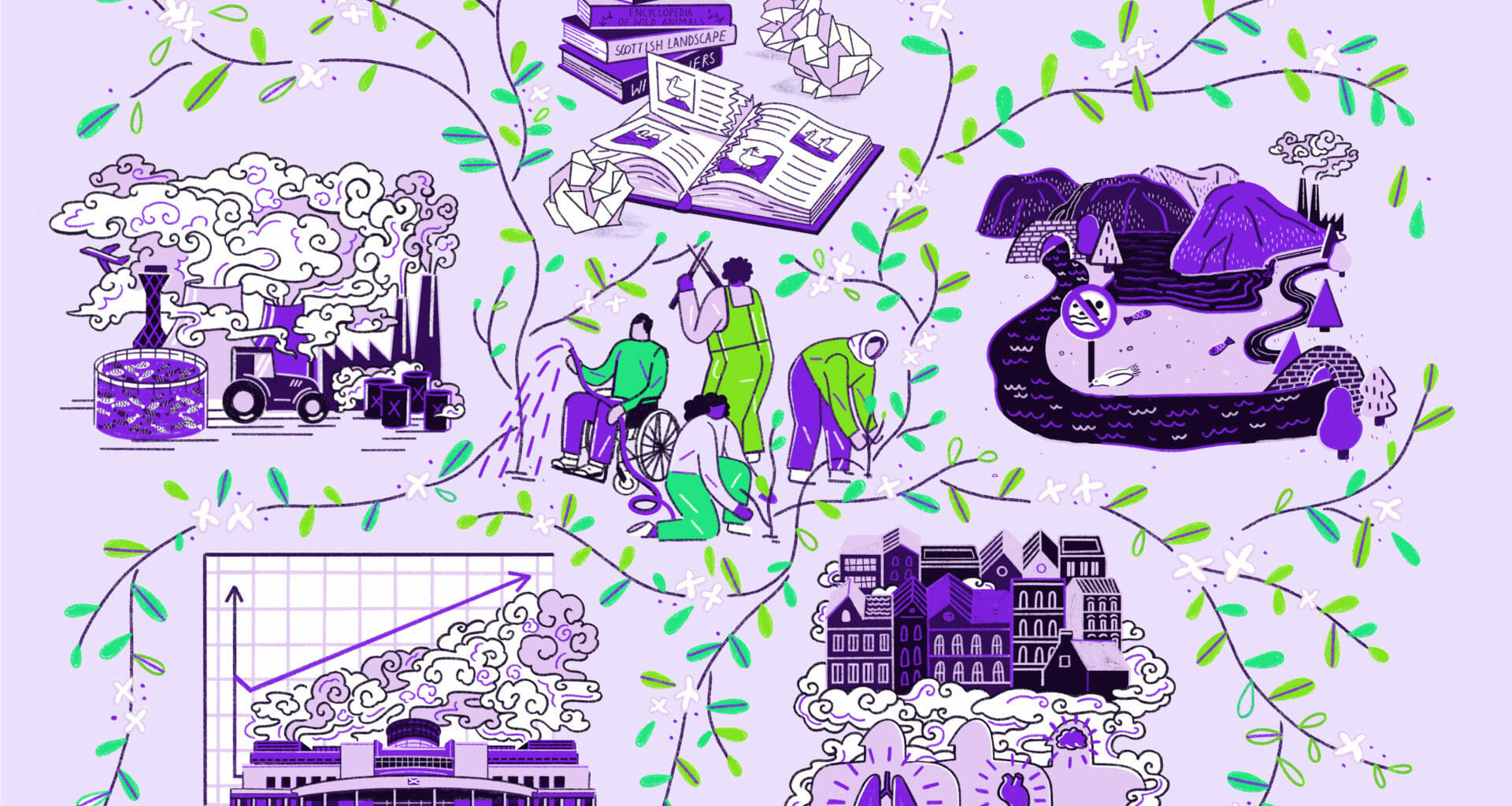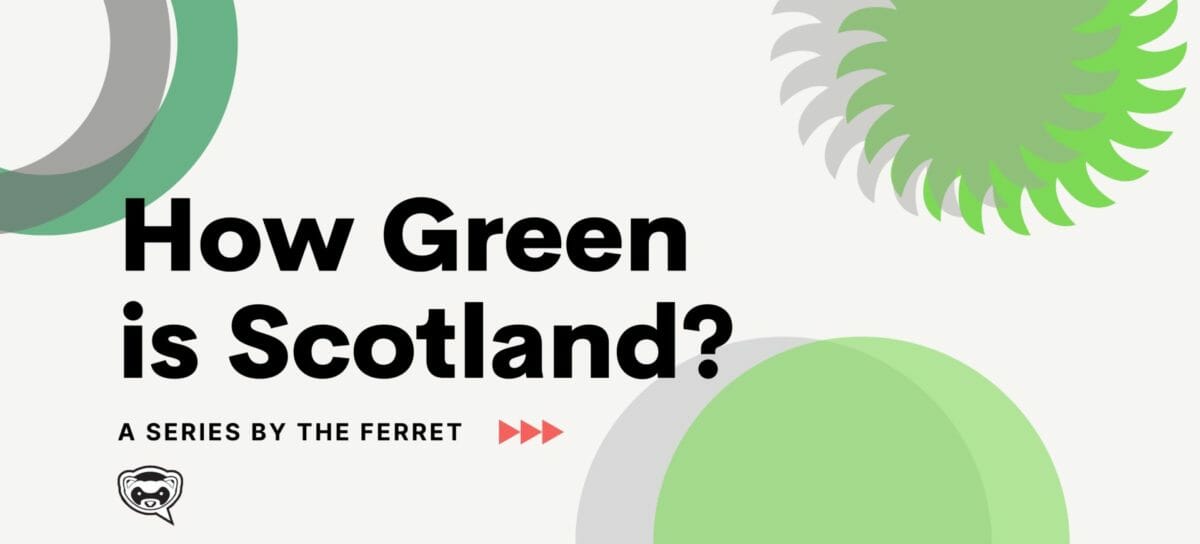
Over the last five days The Herald and The Ferret have published a series of in-depth reports ahead of COP26, offering readers exclusive insight into the current state of Scotland’s environment.
How Green Is Scotland? was produced after two months of digging by a team of Ferret journalists who investigated a range of pressing issues linked to the climate crisis.
Our exposés included a story revealing the dangerous levels of air pollution in Scotland’s streets and a report on Scotland’s biggest polluting companies. We also looked at the impact of climate change on our natural habitats and wildlife, how Scotland’s rivers and lochs are officially in the worst state on record, and revealed how the Scottish Government is failing to meet its climate targets.
Environmental and wildlife groups responded to our findings by calling for urgent action to combat the twin climate change and wildlife crises, and help preserve Scotland’s natural heritage. Our reports also included responses from the Scottish Government and other official bodies tasked with overseeing environmental problems.
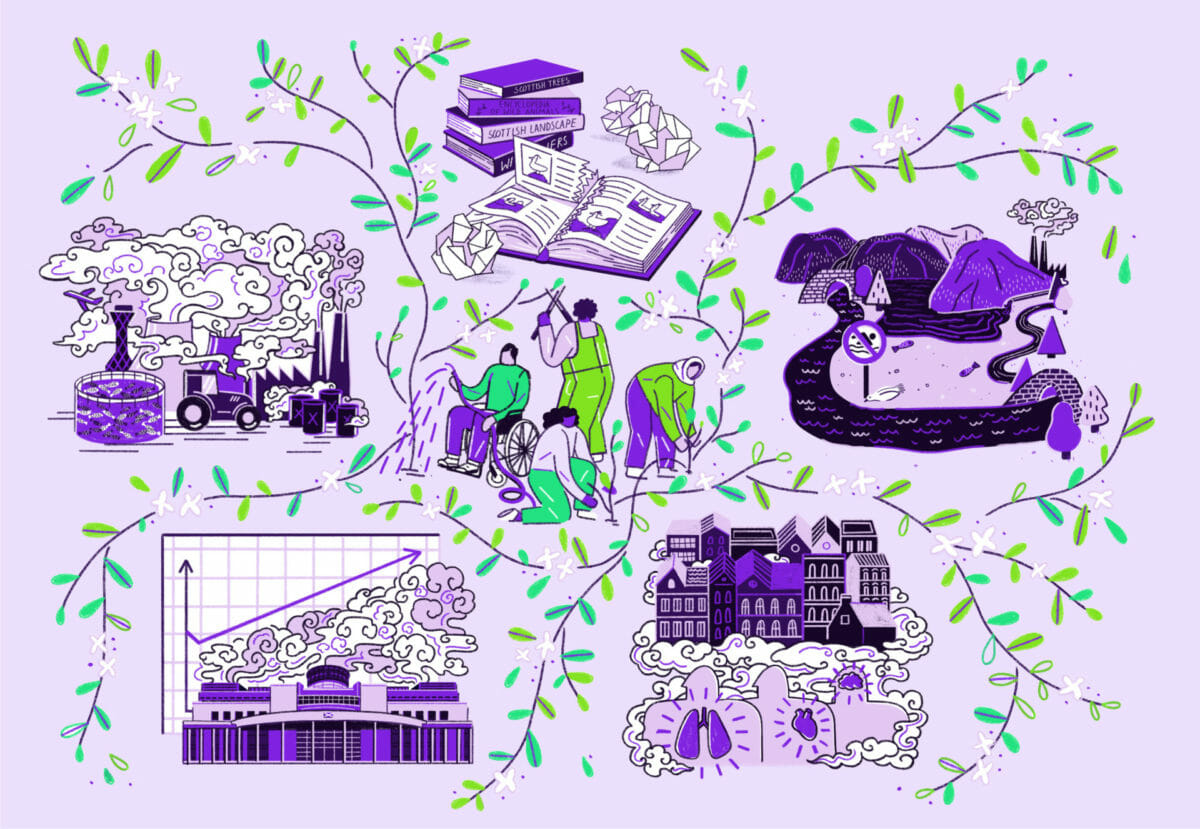
Illustrated by Jagoda Sadowska.
But The Ferret also wanted to give space to some of the hundreds of people across Scotland who are thinking through, and working on solutions, and so for the final day of our series we spoke to those with innovative and inspiring ideas to help tackle the crisis – voices that are often sidelined.
We asked them to outline their vision for how Scotland could create a more sustainable and hopeful future.
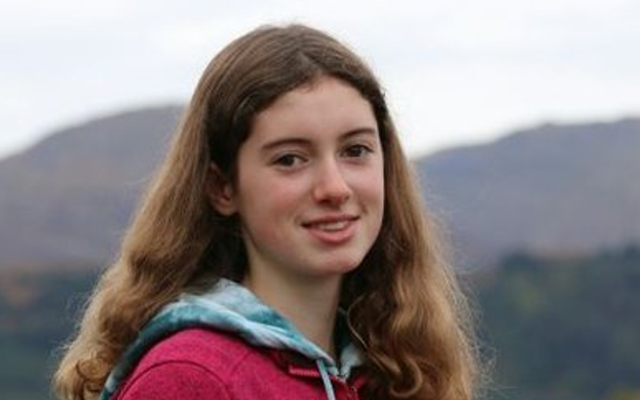
Holly Gillibrand is an environmental activist with the youth campaign group, Fridays for Future Scotland. She is sceptical that Scotland is a “climate leader”.
“We have a huge number of solutions available to us — rewilding, fossil fuel divestment and a just green transition, to name a few. Solving this climate and ecological crisis will require landscape-scale thinking that views the destruction of the living world and its people within the bigger picture, instead of multiple issues that can be fixed without uprooting the system that caused them.”
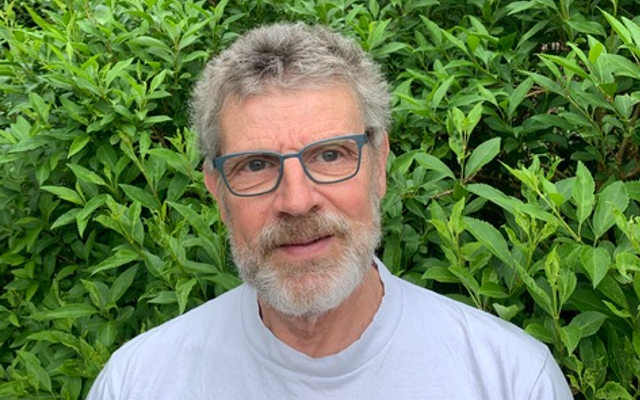
Climate expert Professor James Curran, who chairs Climate Ready Clyde, thinks Scotland has “lost its mojo” on the environment, after years of cuts to agencies, research and monitoring.
“Things have now got so bad that, globally by 2050, about $60tn is needed to fix climate change and ecosystems. For those huge sums, private sector investors, actually in self-interest, have to shift money into a circular economy and nature-based solutions.
“They, and we, must also push governments everywhere for stronger commitments. Scotland can only be a healthy, respected, progressive and economically attractive country if it reignites its ambition and inspires the private sector.”
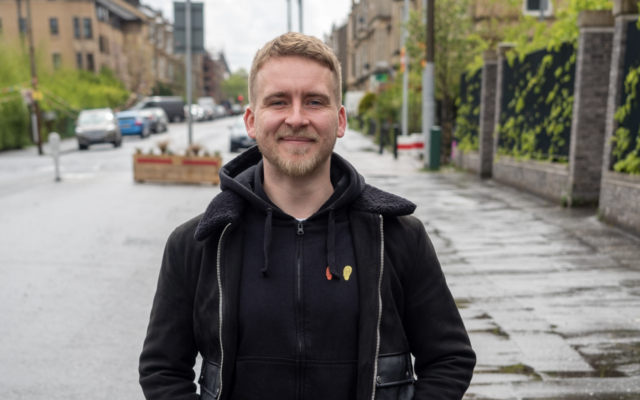
Scotland talks the talk on its climate legislation, but “has tonnes more to do to tackle the crisis”, believes Fraser Stewart, green activist and University of Strathclyde researcher.
“Tackling climate change is a chance to tackle health inequalities – to alleviate fuel poverty and create jobs and shift power and profit away from those destroying ecosystems into local communities and places.
“But we can only do these things if we are prepared to seriously challenge those responsible for emissions and environmental damage through enforcement and taxation, and to invest that into the just transition our country, environment and planet demands.”
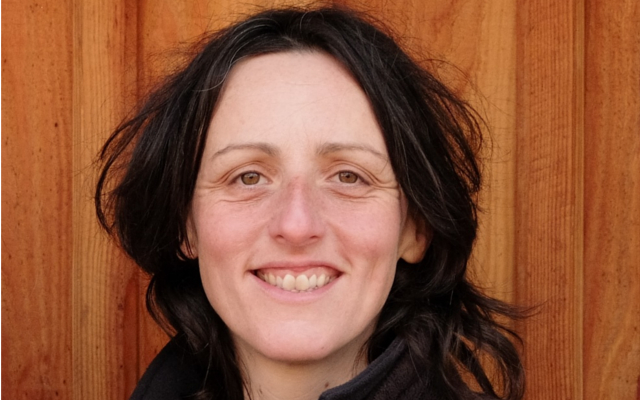
Lynn Cassells, a regenerative farmer at Lynbreck Croft, believes we have “damaged the land we live and work on”.
“We need to give greater value to nature, one where we can produce food in abundance that gives health, rather than the over-processed food that dominates our shops flown in from all corners of the world,” she says.
“One of the main ways we can directly address the climate crisis is transitioning to regenerative agriculture, a way of farming that works in harmony with nature without compromising levels of production.
“We need to close the gap between the producer and the customer, bringing people closer to the food that they eat, rebuilding that relationship and engaging them more in how the food systems should work.”
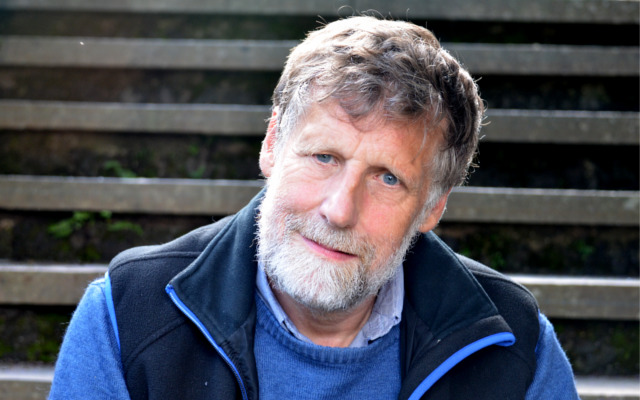
For Alastair McIntosh, a Scottish writer, academic and land reform activist, COP26 should not obscure the work at grassroots level.
“For COP26, Boris Johnson wants the rich countries of the world to commit $100 billion a year in climate finance. But think about it. The USA has spent $8 trillion on its post-9/11 wars alone.
“With land reform, over 400 community trusts now control nearly half a million acres of Scotland’s land. These are working to restore communities of place – with social enterprises, affordable housing, ecological restoration and local renewable energy. Folks are learning how to live afresh with dignified sufficiency.”
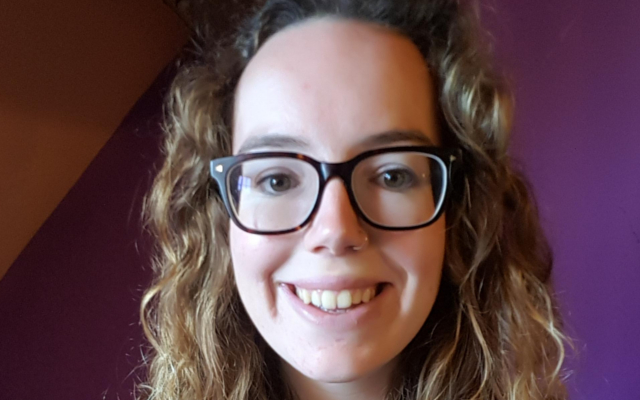
For Lottie Glover, whose D&G Eco Warriors campaign cleans beaches in Dumfries and Galloway, plastic pollution is of central importance. She urges the Scottish Government to move forward with the deposit return scheme.
“Big corporate companies need to start being fined or taxed for the amount of plastic they are producing for packaging”, she says.
“Society needs to move away from the “throw away” attitude. Not only do we need to be recycling and reducing what we buy, but we also need to be reusing everything we possibly can.”
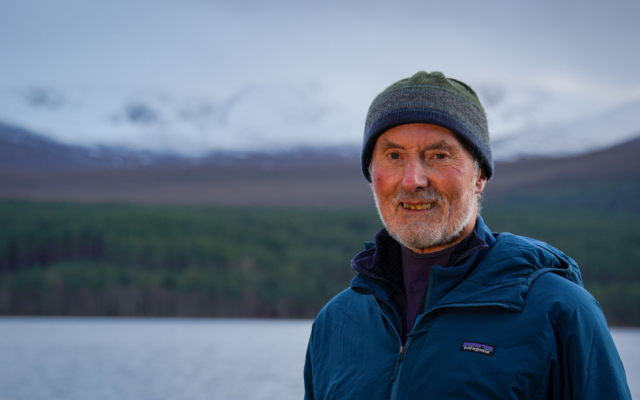
Environmental campaigner Dave Morris is the former director of Ramblers Scotland. His vision is for the Queen to emphasise the importance of managing our land and water at COP26.
“In the Scottish uplands, overgrazing by red deer will be controlled so that our forest and mountain habitats regenerate,” he explains.
“In the lowlands, new regulations and incentives will ensure that farmers expand all field margins to create wildlife habitat, improve public access and prevent river pollution.
“And, to achieve this, the Royal Family will promise to make massive changes in land management at Balmoral and elsewhere.”
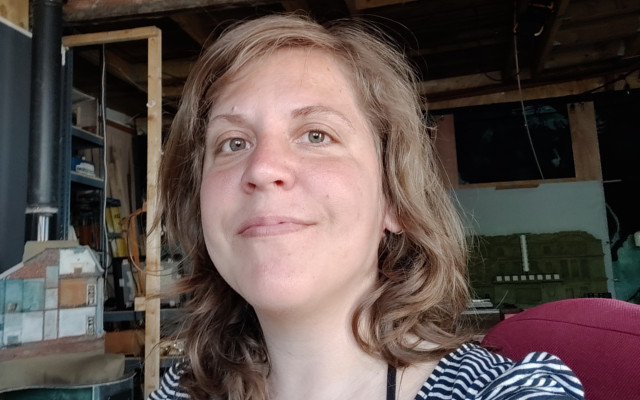
Svenja Meyerricks and the Enough coalition reject the idea that endless growth and consumption is socially productive or ecologically viable. The Scottish Government’s pursuit of “sustainable economic growth” will not help to keep global temperature increase below 1.5C, she says.
“As long as we pursue infinite growth on a finite planet, our other actions to cut carbon emissions will be too little, too late.
“There are so many inspiring, amazing grassroots initiatives we can learn from…tending a vegetable patch together or looking after a community-owned building might not seem like much, but the more we do this, the more we train our collective muscle.”

The environment is a local concern for Ishbel Shand. With Friends of Saint Fitticks Park, she is trying to save an Aberdeen greenspace from being destroyed.
“The profiteers from oil and gas have rebranded themselves, paradoxically, as net-zero champions,” she argues.
“We’d like to see a future Scotland where green-spaces, biodiversity and human wellbeing are enhanced, not destroyed. We want a future with genuine consultative democracy and a holistic, transparent planning system – a future based on sound science, not the nonsense spewed out to politicians by corporate lobbyists. We want an energy transition that is fair to all.”

Opposing oil and gas drilling is key, Paid to Pollute activist Mikaela Loach believes.
“It is easy to feel reassured by the Scottish Government’s words that they are taking action, whether it’s on tackling climate change, air pollution or biodiversity loss,” she says.
“Whatever they’re doing, it’s not enough. Only when enough people demand real action — like opposing new oil and gas drilling — can we drown out the voices of companies that profit from harm. We need to be active citizens if we’re to solve these issues. Governments will act when they are made to act.”
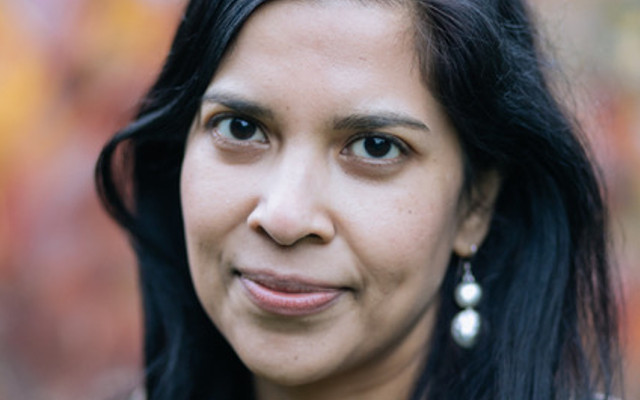
“The UK is the second largest oil and gas producer in Europe”, explains Tessa Khan, from fossil fuel campaigners Uplift.
“We now know that if we’re to have a hope of maintaining a liveable climate, there can be no new fossil fuel projects, not off the coast of Scotland or anywhere.
“So, given the urgency of the climate crisis, the single most important thing the Scottish Government could do is loudly oppose any new investment in oil and gas developments in the North Sea, starting with voicing their opposition to Shell’s plans to develop the Cambo oil field, west of Shetland.”
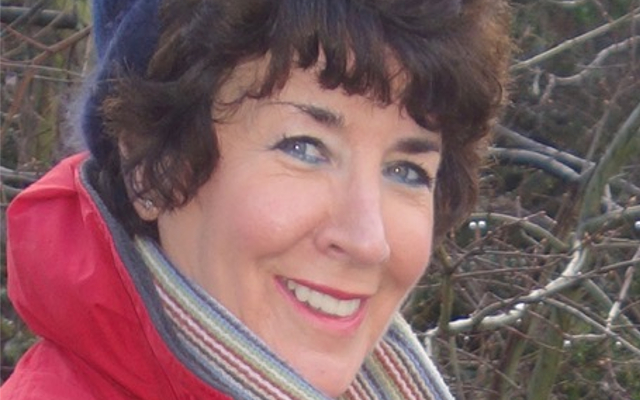
Heather Tuck campaigned against a huge poultry farm in Perthshire, the size of a football pitch. She believes the pressures of intensive farming are causing global harm, and wants a moratorium on new intensive farming sites.
“The most pressing issues of intensive farming are increased cereal growing to feed the fast grown poultry”, she says. “This necessitates huge soya imports causing deforestation in the Americas… and the irreplaceable loss of agricultural land through contamination.”
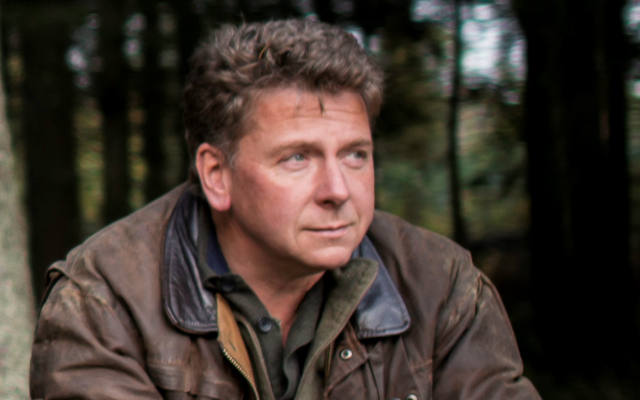
The management of the earth beneath our feet is important, says mycology expert Neville Kilkenny, from the Royal Botanic Garden Edinburgh.
He says: “Currently our soils store 2,500 billion tonnes of carbon – more than the carbon held in our atmosphere and all the living organisms on the planet put together. Forty-five per cent of global soils have been depleted of most or all organic matter. Restoring the right plants with the right fungi to the right ecosystem is pivotal to our planet’s future.”
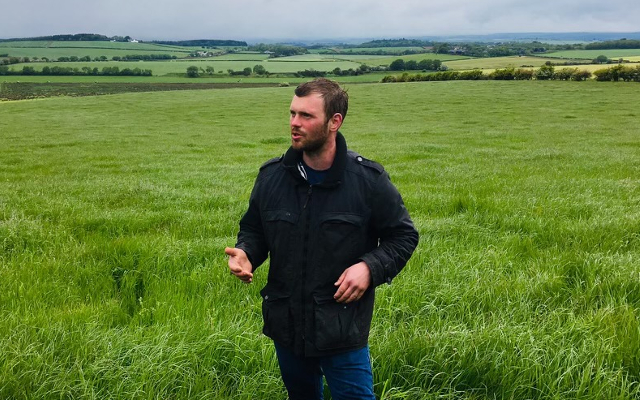
Bryce Cunningham, from Mossgiel Farm in East Ayrshire, wants farming to be part of “the climate solution, not the cause of its destruction”.
“Our future depends on moving away from fossil fueled machines and packaging that does not degrade. We must improve our relationship with our soils to see them as the delicate yet resilient network of microbial, bacterial and fungal life that exists all across nature.
“We must stop this obsession with marketing foods from the opposite side of the planet as more sustainable because they are not from an animal source. This approach can export our climate issues to the third world, which, ironically, is most at risk from climate change.”
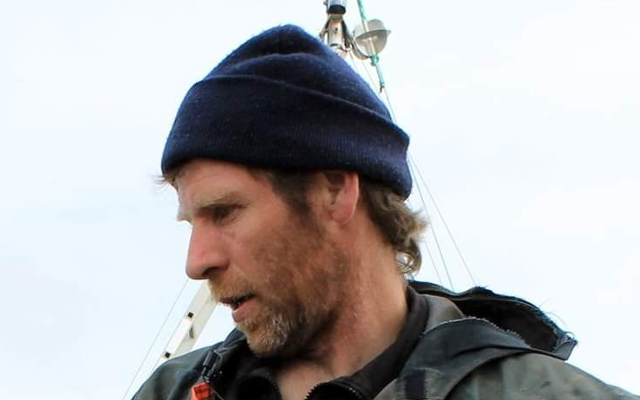
Intensive trawling is “one of the biggest threats” to Scotland’s climate and biodiversity, says Bally Philp of the Scottish Creel Fishermen’s Federation.
“The most recent assessment of our inshore marine regions categorised them all as ‘highly disturbed’ as a result of intensive trawl activity,” he explains.
“This is causing ongoing loss of what remains of Scotland’s much diminished biodiversity.
“Even worse, as a result of trawling, the seabed, instead of acting as carbon sinks as it has for millennia, could be a very significant source of carbon release.”
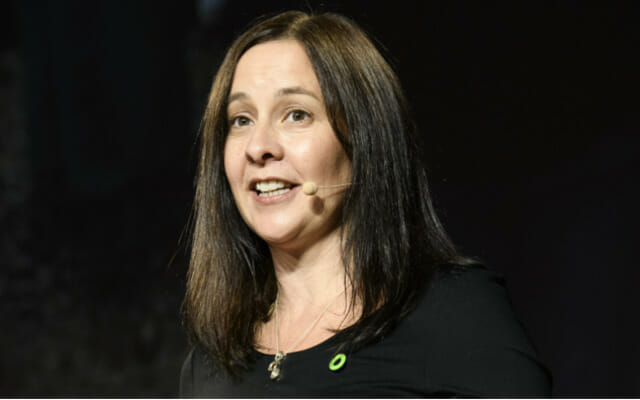
Jess Pepper, a Climate Reality leader, wants Scotland to stop spending money on “exacerbating the ecological and climate emergency”.
“Embracing a bolder vision for a sustainable Scotland can and should engage, involve and deliver for everyone,” she says.
“A route map to 2030 could bring focus to the scale and pace of action required to achieve this vision. With clear roles and milestones for every sector and regular progress reports to the people of Scotland, this could improve scrutiny, quickly shed light where progress is lacking, ensure urgent delivery where it is needed most and secure hope for a sustainable future.”
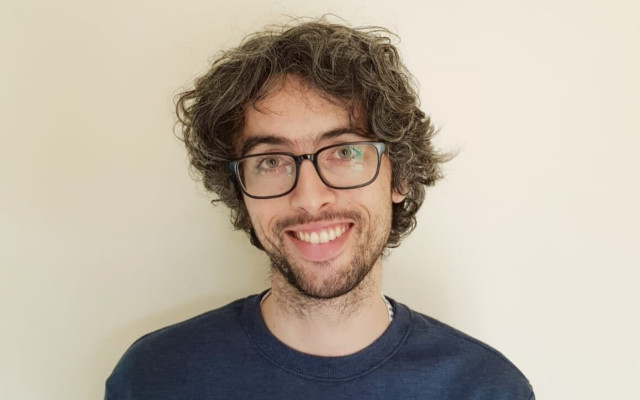
Scott Tully, from Glasgow Calls Out Polluters, wants climate policy that isn’t “determined by private corporate interests”.
“I’m not daft though,” he says. “I don’t expect politicians to suddenly alter this. So I’m looking towards how we as ordinary people organise for a better world. I’m thinking about class struggle, mutual aid, finding ways of building power and agency.
“It’s challenging, of course. But with workers taking action across the board and the climate movement bubbling away, you can see the possibilities of creating something really powerful.”
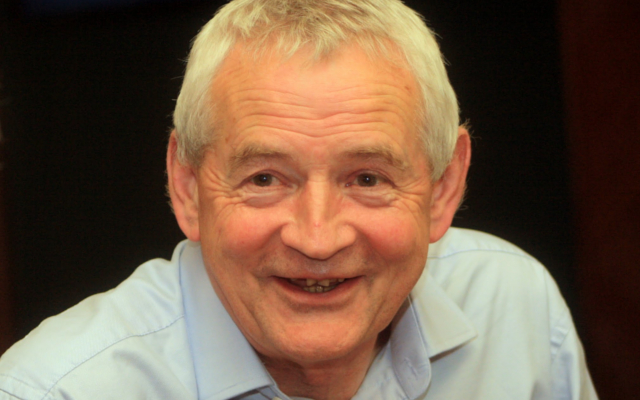
Fintan Hurley, from the Institute of Occupational Medicine, has been advising government on air pollution for 25 years.
“The environmental crisis and societal inequality go together, globally and locally, caused by insatiable consumption and pursuit of profit that plunders the planet, keeps most people poor and denies responsibility”, he says.
He cites the Common Weal’s Green New Deal for Scotland as a practical plan for low carbon, social justice and ecological diversity. “We need big changes, integrating environmental and social justice, locally and internationally,” he argues.
“It’s an immense project, but possible – well worth uniting behind.”
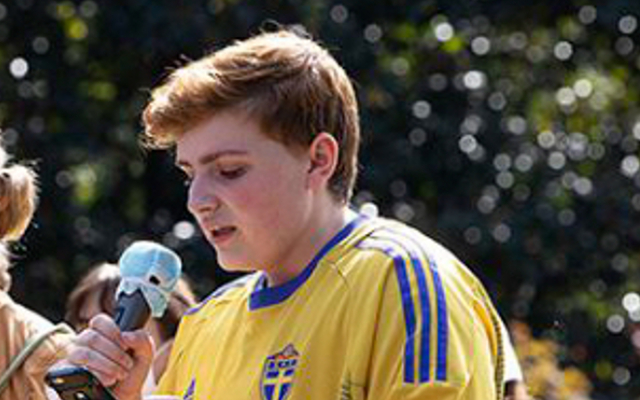
Dylan Hamilton, a 17-year-old climate activist from Glasgow, thinks solutions are available, but governments need to listen to experts.
“We have to start by fully acknowledging that the climate crisis affects every section of society,” he explains. Toxic air pollution causes and exacerbates health conditions, food and water insecurity will increase and sea level rise will force millions of people out of their homes.
“If the government fully understands the extent of the problem, then the political will can be there for the necessary changes to happen.”
“I’m not an expert, I’m 17, so I can’t say exactly what should be done which is why I would suggest the government listen to the scientists, the engineers, the conservationists and more. The solutions are all here with people ready to implement them, we don’t need to come up with futuristic technologies.”
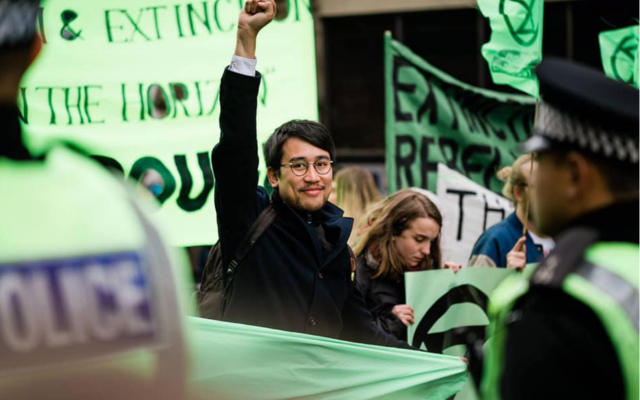
COP26 coalition co-ordinator, Quan Nguyen, says stopping the Cambo oil field, shutting down Mossmorran and transitioning away from fossil fuels are crucial, but Scotland must “rethink the economic system” driving climate change.
“This must come from the ground up, from peoples and communities across the nation,” he says.
“Creating this moment must be central to all organising after COP26. Scotland’s chance for this can be independence, but this alone won’t fix things. It could create a moment of flux to rethink and reshape society, in a way that is fundamentally different to what has gone before. Let’s work together to create the early days of a better nation.”
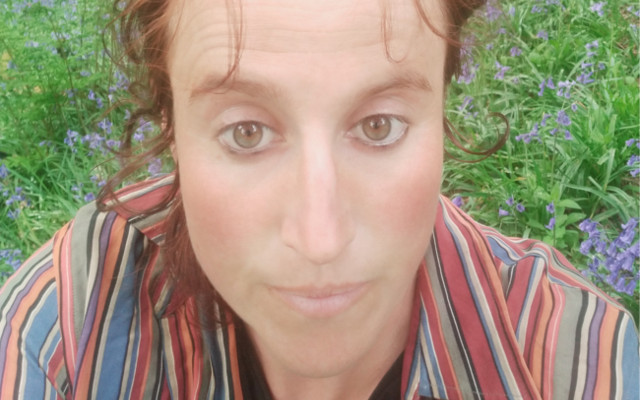
Tilly Gifford protested over Aberdeen airport expansion, and thinks COP26 is “an opportunity to shine an interrogating light on the corporate agenda”.
“What we are knowingly losing and destroying is heart-breaking and terrifying,” she says.
“COP26 must expose the corporate scams, whereby climate tokens get sold for carbon capture whilst these industries continue to churn out the same amount of emissions, where ExxonMobil and Ineos are still allowed to spew pollution unchecked.
“We must manifest a new paradigm away from this aggressive capitalism and rampant individualism. One that doesn’t see land merely as a resource to carve up and plunder.”
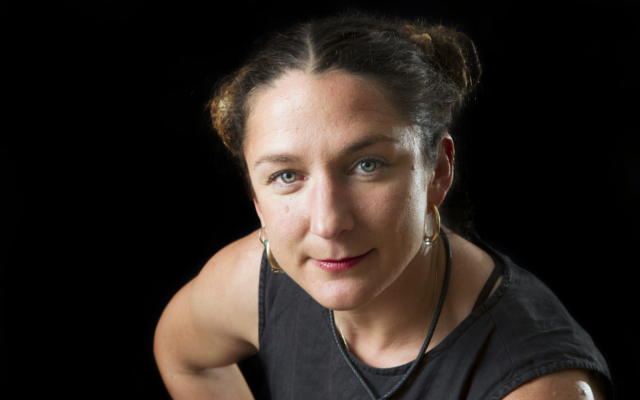
Art and creativity have a role to play in our climate future, explains Cate Ross, who works with the EcoArt charity.
“Sometimes creativity is seen as a luxury – a fancy of the privileged few, or a quaint pass time. But it is more about culture-making in this period of environmental and social crisis.
“I believe that, if we can model and deepen EcoArt’s creative participatory methodology in our communities across our society, then the inevitable ultimate outcome is a fair, just and equitable global community which protects our biosphere in environmental and societal terms.”
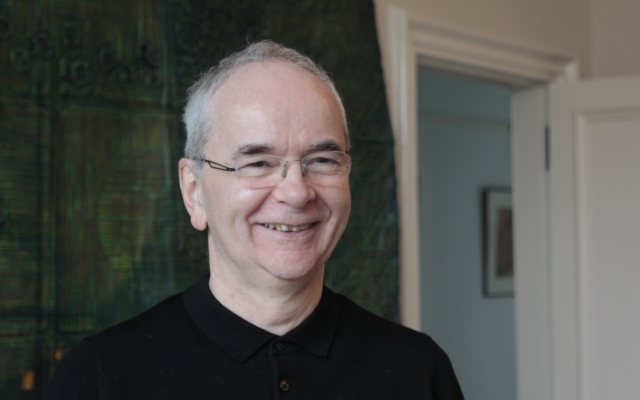
Ben Twist, of Creative Carbon Scotland, links the arts to climate sustainability. He thinks we are misunderstanding the crisis as an economic, scientific and technical challenge, not a cultural one.
“Culture — the customs, arts, social institutions, and achievements of a society — and its influencing power is partially responsible for our carbon- and consumption-focused lifestyle and society.
“The arts and culture have an important role in the transition to a sustainable future. Like everything, they have a carbon cost. But they also have great power to influence climate action, because engaging in cultural activity affects our thoughts, attitudes, behaviours and ultimately how we interact with our world and treat our planet and natural resources.”
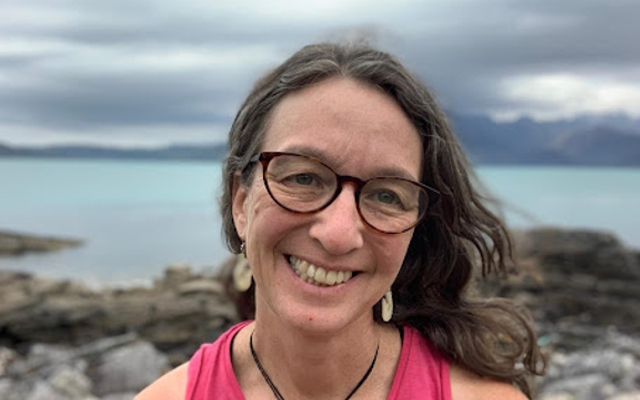
Refugee researcher Alison Phipps wants us to learn from those who have survived the “disasters which lead to people fleeing their homes”, and begin again with “different ways of being”.
“The task is one of hospitality – to ideas and experiments in careful, simpler living that are more kindly to the world. Hospitality means sharing what we have for the purpose of conviviality and good will.
“The task is also a spiritual one in that it requires not hubris but humility – a reckoning with the fact that those of us on a greedy, carbon-guzzling track have got it badly wrong.”
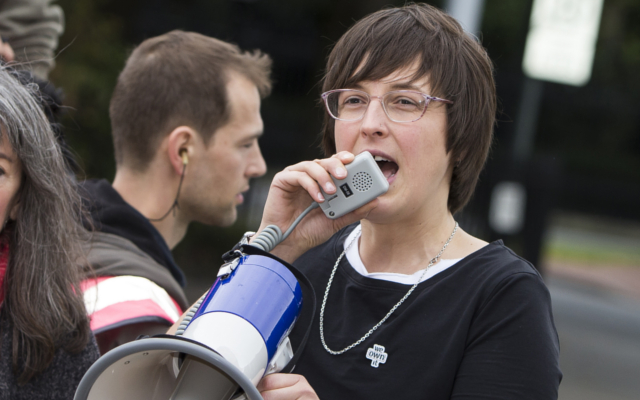
Transport is the biggest contributor to climate change in Scotland, and deserves “urgent attention,” according to artist and campaigner Ellie Harrison, who wants a fully integrated, protected public transport network similar to Switzerland’s.
“We urgently need to deliver a world-class, fully-integrated public transport system, which means no matter where you live you can get around easily without needing to own a car,” she says.
“This is only achievable with complete public control over the network, so our regional transport authorities can plan bus routes and timetables to integrate seamlessly with trains, trams, Subway and cycle hire.”
“This system must be up-and-running so that by 2030 public transport has become the default option for everyone to get around. The only way we’re going to achieve behaviour change on that scale is if we make all regional public transport free.”
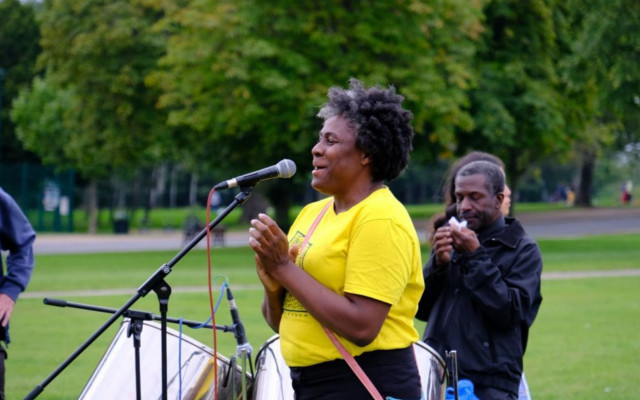
Yvonne Blake is a climate and migrant justice activist, two issues that are “intrinsically linked”, she says.
“It’s crucial that Scots start acting in solidarity with people from the global south who are least responsible for climate change and are most impacted from lack of basic things like having adequate food or clean water to drink,” she argues.
“As a black Afro Caribbean person whose heritage is marred by slavery I am always very aware that if our people just waited to be liberated, I would not be part of these conversations now.
Whenever you see injustice, you can’t look away – expect someone else to deal with it – we all must challenge injustice collectively.”
“Leaders attending the COP26 are not going to bring justice. Climate justice will be achieved by the people, coming together and acting in solidarity with those most affected.”












